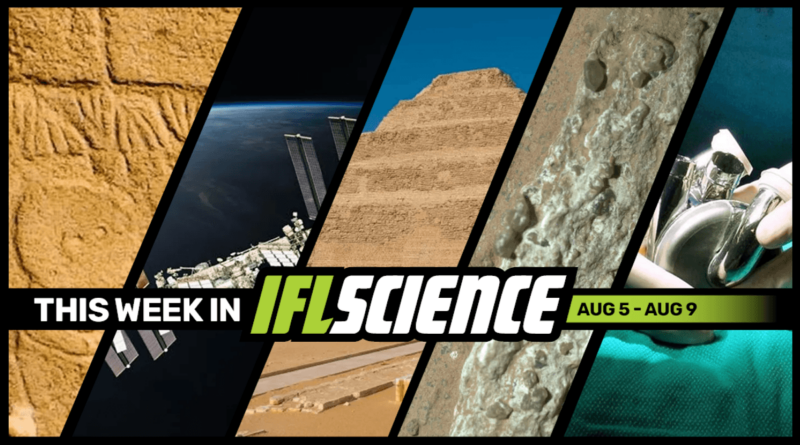The “World’s Oldest Calendar” may feature a comet impact, the world’s first Titanium heart implant, and more this week.
This week, the first space archeology study was carried out on the ISS, we investigated whether the Egyptians actually built their ancient pyramids by raising water, and explained why. ng when people are excited about the discovery of Perseverance’s “possible biosignature” on Mars. . Finally, we asked why we believe urban legends like the Russian sleep experiment.
Subscribe to the IFLScience newsletter for the biggest science news delivered straight to your inbox every Wednesday and Saturday.
“World’s Oldest Calendar” May Reveal Catastrophic Drought 13,000 Years Ago.
A negative comet impact 13,000 years ago may have caused the development of civilization, according to the authors of a new study. The event – which many scientists believe never happened – may have been recorded at the world-famous site of Göbekli Tepe, part of a series of carvings that researchers say represent the oldest solar calendar in the world. Read the full story here
First Archaeological Survey in Space Conducted by ISS
Archeology and outer space may not sound like they should mix outside of science fiction – but aboard the International Space Station (ISS), the first archaeological survey of Ancient objects in the sky have been created. The research not only sheds light on how humans have adapted to life on the ISS, but also shows how archeology can be used to study remote and extreme environments. Read the full story here
Did the Egyptians Really Build Their Ancient Pyramids Using Hydraulic Lifting?
The world of Egyptology has had its feathers ruffled by a controversial new study that claims the 4,500-year-old pyramid was built with jaw-droppingly complex technology, including an impressive hydraulic lift. According to the authors, the mind-blowing process enabled the massive structures to float from the ground to the top of the pyramid through a central tube, like a lava flow from a volcano – however archaeologists old things are always uncertain. Read the full story here
Why People Are So Excited About ‘Possible Biosignature’ Mars Discovery
Recently, NASA’s Perseverance Mars rover mission team announced the discovery of an interesting rock they encountered. The rock called Cheyava Falls, and the arrow-shaped rock is the most promising source for the search for ancient life on Mars. There are structures visible in the rock that are consistent with being modified by microbes – it doesn’t mean this is the discovery of life, but there is a lot to enjoy. Read the full story here
World Premiere of Titanium Heart Harnessing Maglev Technology
The titanium heart sounds like something made for the Tin Man The Wizard of Oz – but for the first time, on July 9, it was inserted into the patient. The total artificial heart (TAH) is a proposed solution to help people with heart disease who need a heart transplant and is now considered a bridge to heart transplantation in severe cases of heart failure. the heart Read the full story here
TWIS is published weekly on our Linkedin page, join us there for more content.
Part of the week:
The Russian Sleep Experiment and Why We Believe Urban Legends
The Russian sleep experiment is often used as an example of the horrible experiments people have done on each other – only, it never happened. But what makes stories like this “believable”? Or, to put it another way, why do some stories become urban legends while others do not, and why do we accept them? Read the full story here
Other information:
Have you seen our e-magazine, TELL YOU? Only 2 years! The 25 August 2024 edition is available now. Check it out for exclusive interviews, book quotes, long reads, and more.
PLUS, season 4 of IFLScience’s The Big Questions Podcast has started. So far we’ve asked “Why Are We the Only Ones Alive?”, “How Does Climate Change Affect Our Well-Being?”, “Is Evolutionary Biology Sexist?”, and “ Can We Make Dogs Live Longer?
#Worlds #Oldest #Calendar #feature #comet #impact #worlds #Titanium #heart #implant #week
